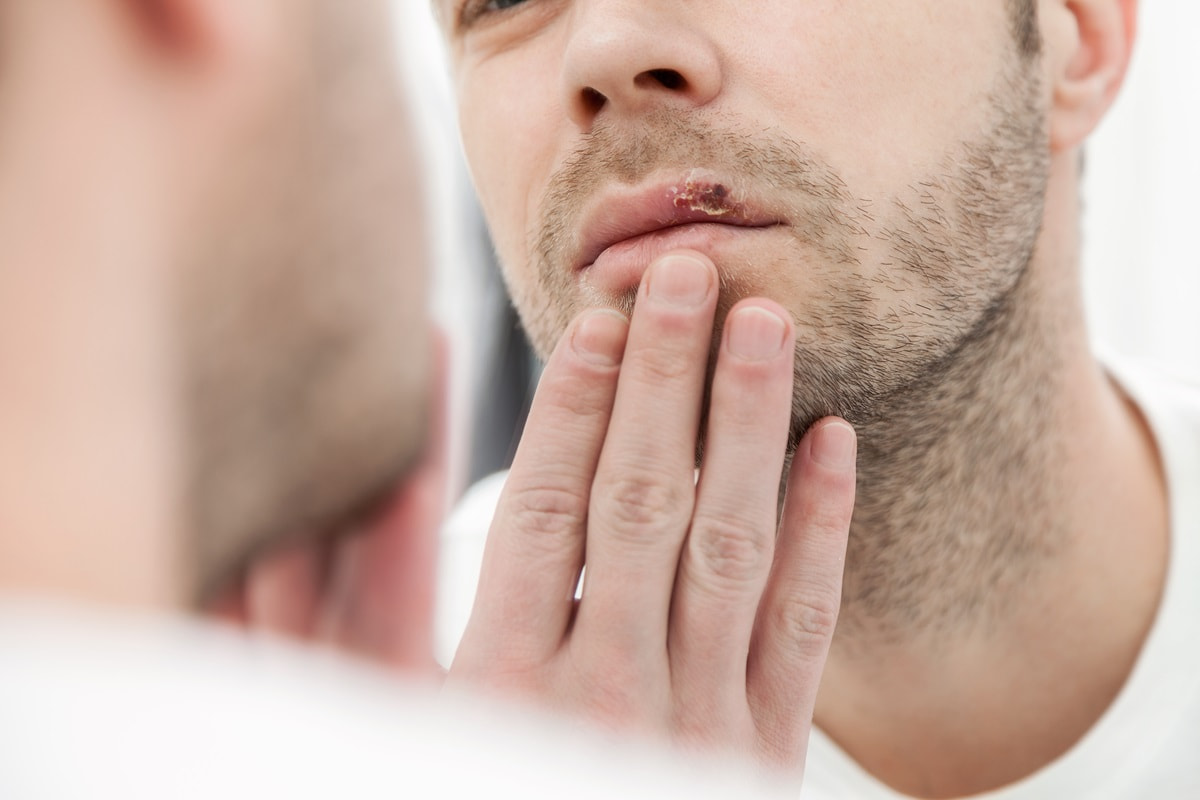Understanding Genital Warts
Genital warts are one of the most common sexually transmitted infections in the UK. While they can be distressing to discover, they're generally harmless and highly treatable. Let's explore everything you need to know.
What Causes Genital Warts?
Genital warts are caused by certain strains of the human papillomavirus (HPV), specifically types 6 and 11, which account for about 90% of genital warts cases.
How HPV Spreads
- Skin-to-skin contact during vaginal, anal, or oral sex
- Genital touching without penetration
- Sharing sex toys
- Very rarely, from mother to baby during childbirth
Important Points
- HPV is extremely common – most sexually active people will have it at some point
- You can have HPV without developing warts
- Warts may appear weeks to months after exposure – or not at all
- Low-risk HPV types (6 and 11) cause warts but not cancer
- High-risk HPV types (different strains) can cause cancer but rarely cause warts
What Do Genital Warts Look Like?
Genital warts vary in appearance:
Typical Characteristics
- Small, flesh-coloured or greyish bumps
- Can be raised or flat
- Single warts or clusters
- May have a cauliflower-like appearance if multiple warts grow together
- Usually painless (may occasionally itch)
Common Locations
In men:
- Penis (shaft, head, foreskin)
- Scrotum
- Around the anus
- Inside the urethra (rare)
- Thighs
In women:
- Vulva (external genitals)
- Inside the vagina
- Cervix
- Around the anus
- Thighs
Warts vs Other Bumps
Not every bump is a wart. Other possibilities include:
- Fordyce spots (normal sebaceous glands)
- Molluscum contagiosum (different viral infection)
- Skin tags
- Normal anatomical variations
A healthcare professional can diagnose genital warts by visual examination.
Can Genital Warts Be Cured?
This is a two-part answer:
The Warts Themselves: Yes, They Can Be Removed
Genital warts can be effectively treated and cleared. Most people will have no visible warts after treatment.
The Underlying Virus: Usually Clears on Its Own
- In most people (80-90%), the immune system clears HPV within 1-2 years
- Once cleared, the virus cannot cause new warts or spread to others
- A small percentage of people have persistent infection
What This Means
- Treatment removes the visible warts
- The virus typically resolves over time
- Recurrence is possible, especially in the first few months
- Most people eventually become wart-free and virus-free
Treatment Options
Several effective treatments are available:
Topical Treatments (Applied at Home)
Podophyllotoxin (Warticon)
- Applied directly to warts
- Used twice daily for 3 days, then 4 days off
- Repeated for up to 4 weeks
- Destroys wart tissue
- Good for small, soft warts
Imiquimod (Aldara)
- Cream applied 3 times per week
- Used for up to 16 weeks
- Stimulates the immune system to fight HPV
- Good for larger affected areas
- May cause redness and irritation
Sinecatechins (Veregen)
- Green tea extract ointment
- Applied 3 times daily for up to 16 weeks
- Alternative option
Clinic-Based Treatments
Cryotherapy (Freezing)
- Liquid nitrogen freezes and destroys warts
- Done at a clinic
- May require multiple sessions
- Some discomfort during and after treatment
- Good for small numbers of warts
Trichloroacetic Acid (TCA)
- Chemical applied directly to warts
- Burns off wart tissue
- Done at a clinic
- May need repeat applications
Surgical Removal
- Cutting away warts (excision)
- Used for larger or stubborn warts
- Done under local anaesthetic
- Usually very effective
Electrosurgery
- Electric current burns away warts
- Done under local anaesthetic
- Good for larger warts
Laser Treatment
- Used for extensive or difficult-to-treat warts
- Usually when other treatments have failed
- May require multiple sessions
Treatment Choice Factors
Your clinician will recommend treatment based on:
- Number and size of warts
- Location of warts
- Your preference (home vs clinic treatment)
- Pregnancy status (some treatments aren't suitable)
- Previous treatment response
What to Expect During Treatment
Timeline
- Topical treatments: Several weeks to clear warts
- Clinic treatments: May need 1-6 sessions over several weeks
- Complete clearance: Usually within 3 months
Side Effects
- Skin irritation, redness, soreness at treatment site
- Temporary discolouration
- Mild scarring (rare)
- Discomfort during healing
During Treatment
- Avoid sexual contact while warts are present and healing
- Complete the full course of treatment
- Attend all follow-up appointments
- Don't pick at or scratch warts
Recurrence: Will Warts Come Back?
Initial Recurrence Rates
- About 20-30% of people experience recurrence within 3 months
- This doesn't mean treatment failed – it means some virus remained
Why Recurrence Happens
- HPV can remain dormant in nearby skin
- Treatment removes visible warts but not all virus
- Immune suppression can trigger recurrence
Long-Term Outlook
- Recurrence becomes less likely over time
- Most people's immune systems eventually suppress HPV completely
- After 6-12 months without recurrence, likelihood of new warts decreases significantly
Managing Recurrence
- Simply retreat with same or different method
- Recurrence is frustrating but manageable
- Each recurrence tends to be less extensive
Living With Genital Warts
Telling Partners
- Have an honest conversation before sexual contact
- Most sexually active people encounter HPV at some point
- Many partners will be understanding
- Consider testing/discussion before starting new relationships
Reducing Transmission
- Avoid sex while warts are visible and healing
- Condoms reduce but don't eliminate transmission (skin-to-skin contact)
- Partners may already have HPV (it's extremely common)
- Once warts clear and virus resolves, transmission risk diminishes
Emotional Impact
- Feeling upset or embarrassed is normal
- Remember: genital warts are extremely common
- They're not dangerous (low-risk HPV doesn't cause cancer)
- They're treatable and usually temporary
- Support is available if you're struggling
Prevention
HPV Vaccination
- The best protection against genital warts
- Gardasil 9 covers HPV 6 and 11 (wart-causing) and high-risk types
- Offered to all UK children aged 12-13
- Available for others through catch-up programmes or privately
- Most effective before sexual debut, but still beneficial after
Condoms
- Reduce transmission risk
- Don't provide complete protection (skin-to-skin contact beyond condom area)
- Still recommended
Regular Screening
- Cervical screening detects high-risk HPV (different types, but important)
- Visual checks can spot warts early
Genital Warts and Pregnancy
If you're pregnant and have genital warts:
- Inform your midwife and obstetrician
- Most treatments are safe; some aren't recommended in pregnancy
- Warts may grow larger during pregnancy (hormonal changes)
- Vaginal delivery is usually safe
- Very rarely, baby can develop warts (but this is uncommon)
Common Questions
Will genital warts affect my fertility?
No. Genital warts don't affect fertility.
Do genital warts mean I'll get cancer?
No. The HPV types that cause genital warts (6 and 11) are different from the high-risk types that can cause cancer. However, you can have multiple HPV types, so continuing cervical screening is important.
Can I have sex while I have genital warts?
It's best to avoid sexual contact until warts have cleared and healed. This reduces transmission risk to partners.
How long will I have HPV?
Most people clear HPV within 1-2 years. You won't necessarily know when this happens – it's a gradual process.
Can I give myself genital warts on other parts of my body?
Genital HPV types typically only infect genital areas. Spreading to other body parts is rare.
The Bottom Line
Genital warts are common, treatable, and usually temporary. While discovering warts can be distressing, the outlook is good:
- Effective treatments are available
- Most people clear the underlying virus
- Recurrence decreases over time
- Vaccination provides excellent protection
If you think you might have genital warts, don't delay – see a healthcare professional for diagnosis and treatment.
Get Expert Help
Our sexual health experts can diagnose and treat genital warts, answer your questions, and support you through recovery. Book your confidential appointment today.
Get Tested Today
Take control of your sexual health with our confidential, comprehensive STI testing services.
Share this article:



